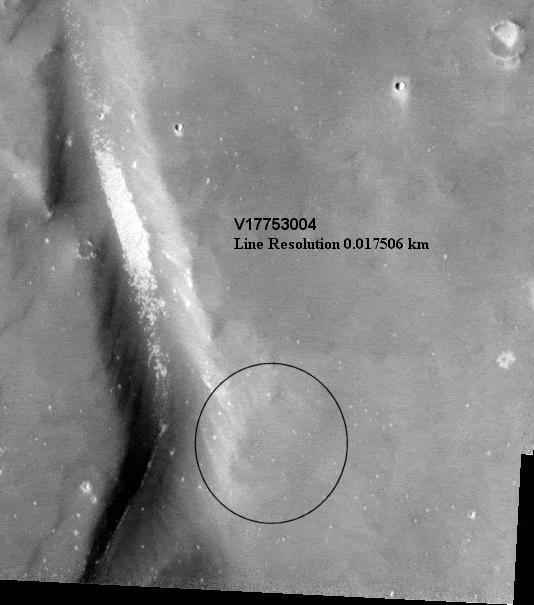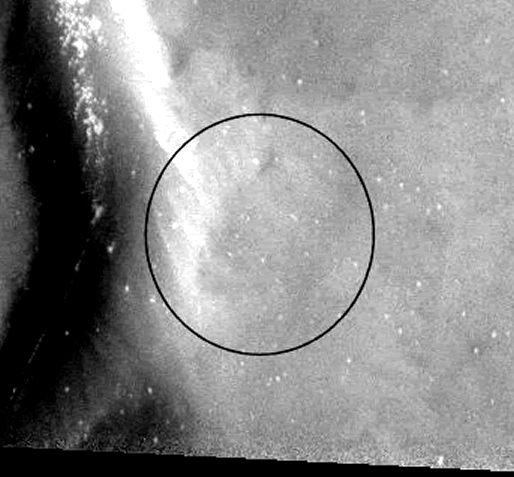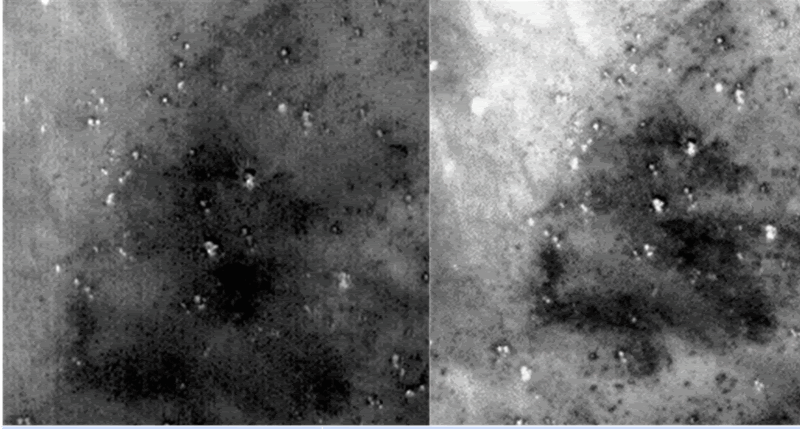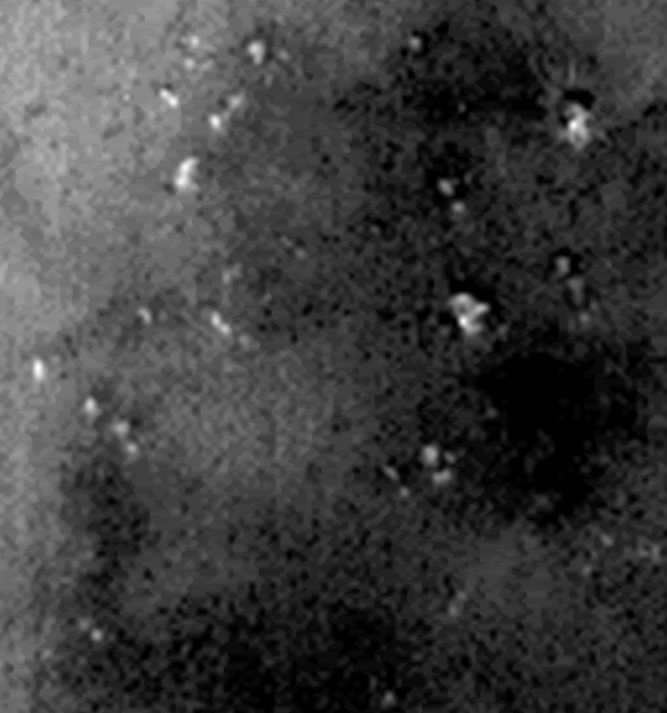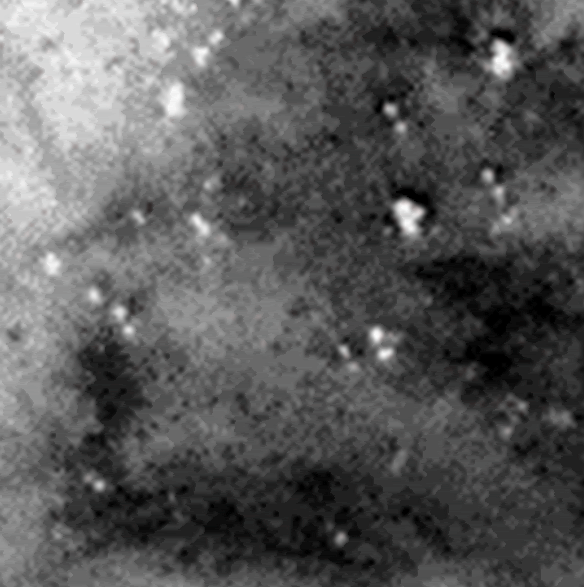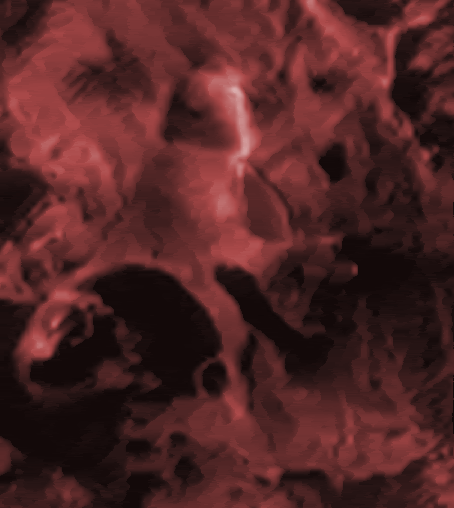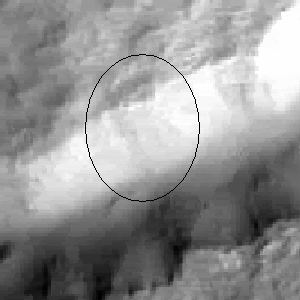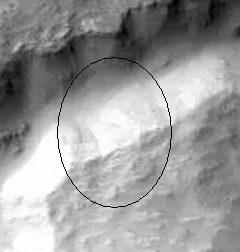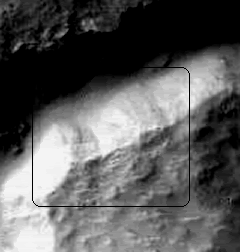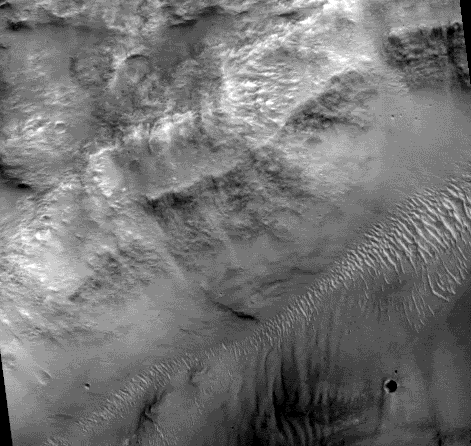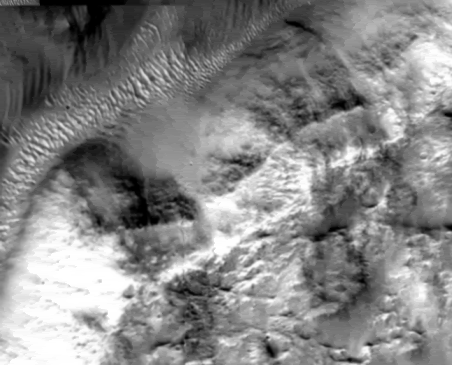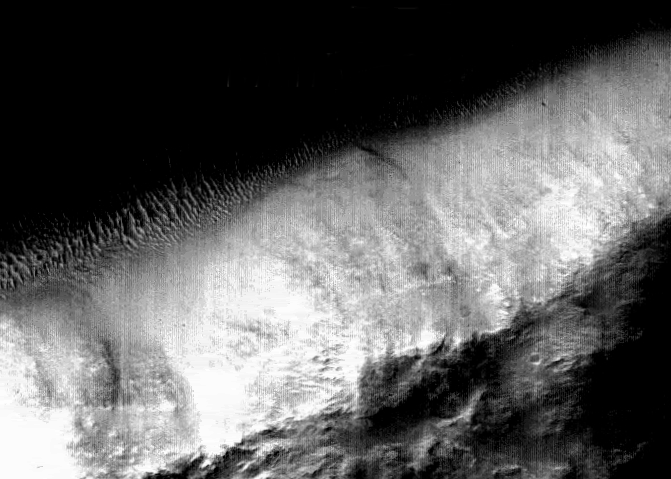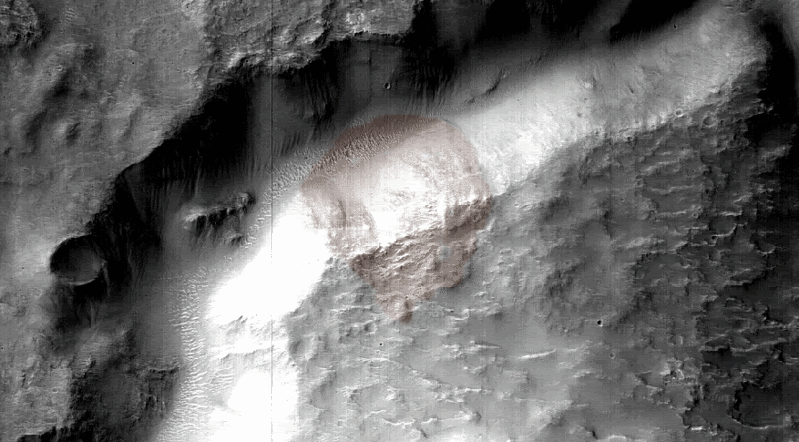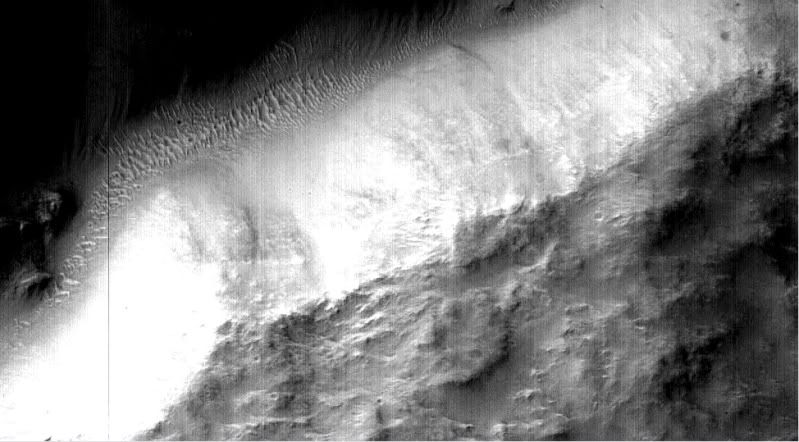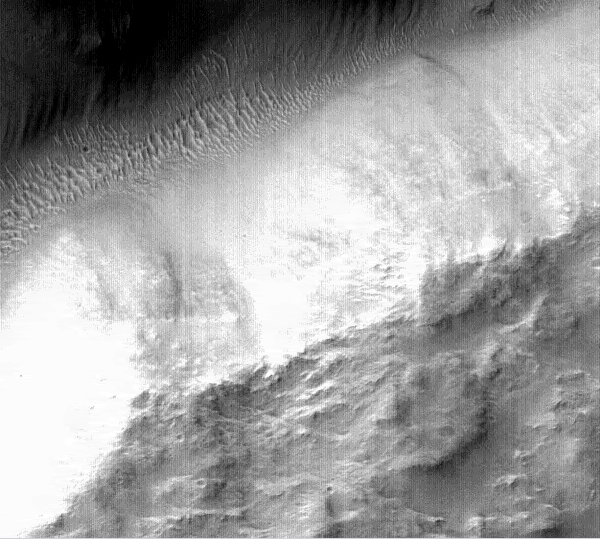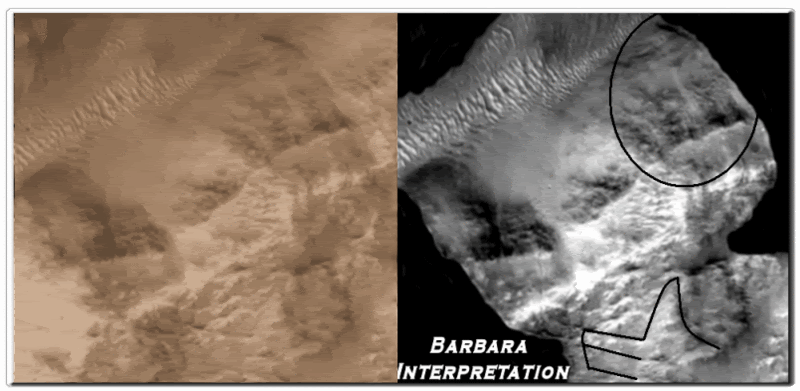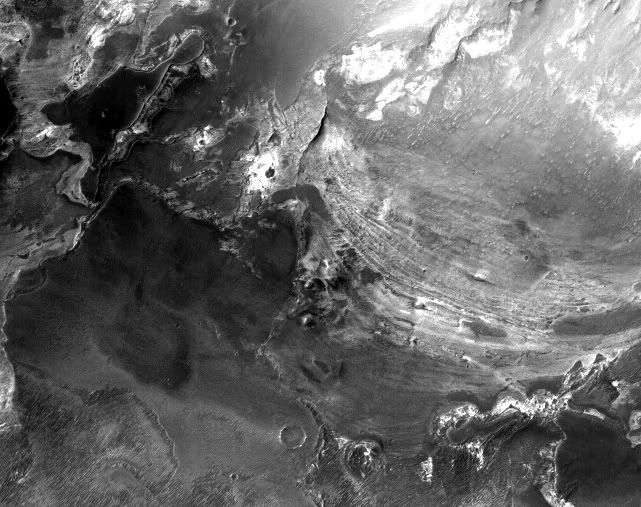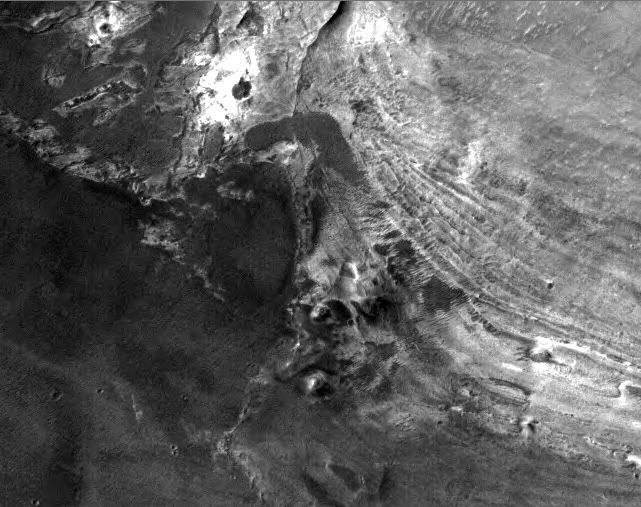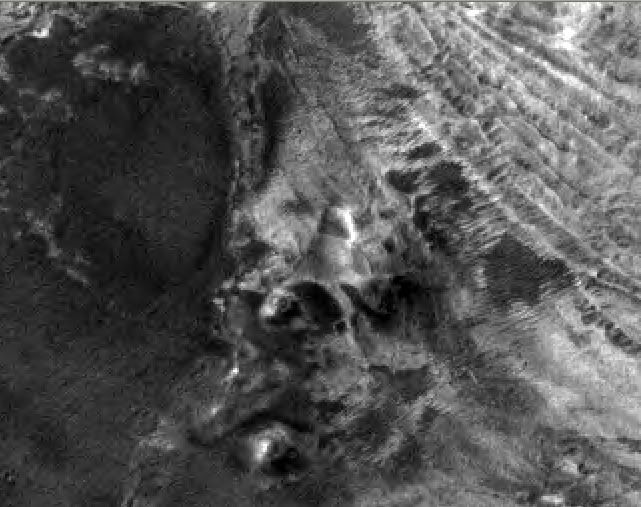- Thank you received: 0
Faces from the Chasmas
- neilderosa
-
- Offline
- Platinum Member
-

Less
More
16 years 3 months ago #15667
by neilderosa
Replied by neilderosa on topic Reply from Neil DeRosa
<blockquote id="quote"><font size="2" face="Verdana, Arial, Helvetica" id="quote">quote:<hr height="1" noshade id="quote">As a scientist, you may not refrain from deciding whether your research program is progressive or degenerative, and you must take the consequences of your decision, abandoning the program in one case, perusing it in the other.
As a scientist, you will have to take risks, choosing certain statements as the basis of your work and ignoring, at least until your research program has developed, all actual and potential attacks upon them. [Thomas Kuhn, Road Since Structure, 132]
<hr height="1" noshade id="quote"></blockquote id="quote"></font id="quote">
The present research has not, and will not be, abandoned, but at present it relies on the data supplied by a government agency with different priorities from ours. There were over 200,000 MGS MOC images released to the public. In two years, the HiRISE project has released only one one hundredth of that number. I agree that the best resolution of the artificiality hypothesis will be by "boots on the ground," but I would add to that that it will not be boots of NASA astronauts but of private citizens and researchers working there a hundred or more years from now, who, if we are right, are bound to find artifacts of previous (or other) civilizations. Anyone interested in how this will come about should read the works of Robert Zubrin.
[Neil]
As a scientist, you will have to take risks, choosing certain statements as the basis of your work and ignoring, at least until your research program has developed, all actual and potential attacks upon them. [Thomas Kuhn, Road Since Structure, 132]
<hr height="1" noshade id="quote"></blockquote id="quote"></font id="quote">
The present research has not, and will not be, abandoned, but at present it relies on the data supplied by a government agency with different priorities from ours. There were over 200,000 MGS MOC images released to the public. In two years, the HiRISE project has released only one one hundredth of that number. I agree that the best resolution of the artificiality hypothesis will be by "boots on the ground," but I would add to that that it will not be boots of NASA astronauts but of private citizens and researchers working there a hundred or more years from now, who, if we are right, are bound to find artifacts of previous (or other) civilizations. Anyone interested in how this will come about should read the works of Robert Zubrin.
[Neil]
Please Log in or Create an account to join the conversation.
- neilderosa
-
- Offline
- Platinum Member
-

Less
More
- Thank you received: 0
16 years 2 months ago #15801
by neilderosa
Replied by neilderosa on topic Reply from Neil DeRosa
Though we applaud rd's effort in trying to get NASA's operative HiRISE to re-image the PI under high resolution, logic dictates that they won't do it. My reasoning is that the PI is probably the best example of a realistic human-likeness art on Mars. They will let that be made public only when they are ready and apparently it's not yet the time.
Anyway, JP Levasseur just made me aware of a third visual confirmation of the PI. It was imaged by THEMIS; I dont have the date. Maybe someone can look that up plus the link from the numbers in the image. The PI is barely visible and most likely only to those who have been staring at the MOC medium resolution images for several years now. As a memory refresher, here are close-ups of the two known MOC images of the PI. An interesting aspect of the THEMIS image is that the lay of the land in this 17.5 m/p resolution image is more discernable than previously.
Neil DeRosa
[Feb. 15 edit]
This confirmation of the profile image was taken in year 3 of the Mars Odyssey Mission THEMIS (2005), at around 4pm Mars time. So according to Tom's principle, we can see that the shading indicates that the landform which runs north and south is a channel or depression and not a ridge. Nefertiti is located at the right/east edge of the channel, looking west, bottom of image.
themis-data.asu.edu/planetview/inst/themis/V17753004#start
THEMIS PI
THEMIS PI close-up
M0305549 E0501429 composite
M0305549 close-up
E0501429 close-up
Anyway, JP Levasseur just made me aware of a third visual confirmation of the PI. It was imaged by THEMIS; I dont have the date. Maybe someone can look that up plus the link from the numbers in the image. The PI is barely visible and most likely only to those who have been staring at the MOC medium resolution images for several years now. As a memory refresher, here are close-ups of the two known MOC images of the PI. An interesting aspect of the THEMIS image is that the lay of the land in this 17.5 m/p resolution image is more discernable than previously.
Neil DeRosa
[Feb. 15 edit]
This confirmation of the profile image was taken in year 3 of the Mars Odyssey Mission THEMIS (2005), at around 4pm Mars time. So according to Tom's principle, we can see that the shading indicates that the landform which runs north and south is a channel or depression and not a ridge. Nefertiti is located at the right/east edge of the channel, looking west, bottom of image.
themis-data.asu.edu/planetview/inst/themis/V17753004#start
THEMIS PI
THEMIS PI close-up
M0305549 E0501429 composite
M0305549 close-up
E0501429 close-up
Please Log in or Create an account to join the conversation.
- neilderosa
-
- Offline
- Platinum Member
-

Less
More
- Thank you received: 0
16 years 1 month ago #23508
by neilderosa
Replied by neilderosa on topic Reply from Neil DeRosa
Marsrocks has a nice U-tube presentation of this object at:
www.youtube.com/user/marsrocks999
where he compares this artifact to various damaged and wrecked space capsules and wrecked submarines. This object is a prime candidate for reimaging by MRO because it should be quite clear under high resolution whether this is a natural formation or a manufactured metal object, however old. Here is some data and description from my records. [Neil DeRosa]
<b>Wrecked Ship</b>
This object has several features which suggest that it is the ruins of a large machine, perhaps an airship or spaceship: In center-left of the cropping there appears to be a cavity in the form of a semi-circle. This is modeled as the wrecked nose of the ship. One of two nose cones is still attached; the other is in the foreground at the bottom of the image (not shown in this crop). The cylindrical hull of the ship is seen in perspective with the tail end to the upper right of the image. The hull seems to have a large tear on its right side (our view); a rectangular opening further toward the rear, (also on the right); a raised bridge on top of the cylindrical hull; two possible short wings or fins, one on each side; and a tail wing or fin just above the rectangular opening. The shading of the feature indicates an object with machined (as opposed to irregular or random) surfaces and lines. The front and center parts of the ship have two defined circular lines, which parallel each other and correspond to the cylindrical shape and circular opening or cavity, in shape and shading; while the rear end of the ship appears more rectangular or box shaped, with several lines and gradients of shades that run parallel and perpendicular to each other. Militating against all of these very suggestive features is the mediocre resolution of the raw data image. With one pixel of light being nearly six meters in length, we can't be that sure of our facts, although they are very suggestive. This feature cries out for further imaging at a resolution at which the detail will be unambiguous.
Data for M0202913, Wrecked Ship: 2006; 74.02W, 6.11S, ~337 m wide, 5.71 m/p, upper West Candor Chasma wall
www.msss.com/moc_gallery/ab1_m04/images/M0202913.html
where he compares this artifact to various damaged and wrecked space capsules and wrecked submarines. This object is a prime candidate for reimaging by MRO because it should be quite clear under high resolution whether this is a natural formation or a manufactured metal object, however old. Here is some data and description from my records. [Neil DeRosa]
<b>Wrecked Ship</b>
This object has several features which suggest that it is the ruins of a large machine, perhaps an airship or spaceship: In center-left of the cropping there appears to be a cavity in the form of a semi-circle. This is modeled as the wrecked nose of the ship. One of two nose cones is still attached; the other is in the foreground at the bottom of the image (not shown in this crop). The cylindrical hull of the ship is seen in perspective with the tail end to the upper right of the image. The hull seems to have a large tear on its right side (our view); a rectangular opening further toward the rear, (also on the right); a raised bridge on top of the cylindrical hull; two possible short wings or fins, one on each side; and a tail wing or fin just above the rectangular opening. The shading of the feature indicates an object with machined (as opposed to irregular or random) surfaces and lines. The front and center parts of the ship have two defined circular lines, which parallel each other and correspond to the cylindrical shape and circular opening or cavity, in shape and shading; while the rear end of the ship appears more rectangular or box shaped, with several lines and gradients of shades that run parallel and perpendicular to each other. Militating against all of these very suggestive features is the mediocre resolution of the raw data image. With one pixel of light being nearly six meters in length, we can't be that sure of our facts, although they are very suggestive. This feature cries out for further imaging at a resolution at which the detail will be unambiguous.
Data for M0202913, Wrecked Ship: 2006; 74.02W, 6.11S, ~337 m wide, 5.71 m/p, upper West Candor Chasma wall
www.msss.com/moc_gallery/ab1_m04/images/M0202913.html
Please Log in or Create an account to join the conversation.
- neilderosa
-
- Offline
- Platinum Member
-

Less
More
- Thank you received: 0
16 years 4 weeks ago #23467
by neilderosa
Replied by neilderosa on topic Reply from Neil DeRosa
Marsrocks made another significant contribution to Mars research of artificial structures and ancient artworks. I'm answering in this thread only because I don't want to "steal his post" and because this relates to the continuing project. The CTX image crop posted by MR is centered perfectly in the south oriented Crownface image, but the resolution is too low to see it, so he must have judged its position by the surrounding terrain. The way I found it was by rotating the image to north oriented, and that way easily found Barbara, which is visible at the lower CTX resolution, being a much larger face (over 2 km wide). As with the Themis image of Nefertiti shown above, this new Crownface image shows the terrain in context, and we see another Mars artwork in or near a dry river bed or channel. As always, new confirmations add to our knowledge of the anomalies we are studying.
South oriented CTX Crownface indicated
North oriented CTX Barbara
MGS Crownface
MGS Barbara
[Edited 3/28/09]
The JP2 crop posted by MR and copied below is the first confirmation of the Crownface I know of, (see CTX thread), showing at least that the original MGS M0203051 was not "a trick of light and shadow." Here is the same crop rotated to show Barbara in fair detail, for the second cofirmation of that face.
South oriented CTX Crownface indicated
North oriented CTX Barbara
MGS Crownface
MGS Barbara
[Edited 3/28/09]
The JP2 crop posted by MR and copied below is the first confirmation of the Crownface I know of, (see CTX thread), showing at least that the original MGS M0203051 was not "a trick of light and shadow." Here is the same crop rotated to show Barbara in fair detail, for the second cofirmation of that face.
Please Log in or Create an account to join the conversation.
- neilderosa
-
- Offline
- Platinum Member
-

Less
More
- Thank you received: 0
16 years 3 weeks ago #22774
by neilderosa
Replied by neilderosa on topic Reply from Neil DeRosa
When you open the jp2 image using the links provided by MR, (CTX thread) you may have to make the DRA adjustment (one of the icons on the top of the IAS viewer window); if not the entire channel in which the faces are found will be in a bright glare and you won't be able to see them at all.
The CTX context image gives an idea of what it might have been like for ET who, approaching from the north would see Crownface, and approaching from the south, Barbara. Also interesting is that at this scale background noise is less of a problem and Barbara stands out quite clearly now; and as already noted we can see that the face was made partly in the channel and partly on the bank of the channel. It is possible that the missing top of Barbara's head was eroded over by wind dunes at the bottom of the channel. [Neil]
Barbara highlighted
More jp2 crops
And here is a new MGS image key using sepia and removing some of the glare, to bring it closer to what we see in the CTX image.
(edit 04/04/09
For readers who don't have time to search the archives for the links to these images, here they are.
www.msss.com/moc_gallery/ab1_m04/images/M0303483.html
www.msss.com/moc_gallery/ab1_m04/images/M0203051.html
global-data.mars.asu.edu/ctx/img/P20_009019_1829_XN_02N275W
[Neil DeRosa]
The CTX context image gives an idea of what it might have been like for ET who, approaching from the north would see Crownface, and approaching from the south, Barbara. Also interesting is that at this scale background noise is less of a problem and Barbara stands out quite clearly now; and as already noted we can see that the face was made partly in the channel and partly on the bank of the channel. It is possible that the missing top of Barbara's head was eroded over by wind dunes at the bottom of the channel. [Neil]
Barbara highlighted
More jp2 crops
And here is a new MGS image key using sepia and removing some of the glare, to bring it closer to what we see in the CTX image.
(edit 04/04/09
For readers who don't have time to search the archives for the links to these images, here they are.
www.msss.com/moc_gallery/ab1_m04/images/M0303483.html
www.msss.com/moc_gallery/ab1_m04/images/M0203051.html
global-data.mars.asu.edu/ctx/img/P20_009019_1829_XN_02N275W
[Neil DeRosa]
Please Log in or Create an account to join the conversation.
16 years 1 week ago #22793
by marsrocks
Replied by marsrocks on topic Reply from David Norton
Neil, your spacewreck has been acquired by CTX.
It is in the dead center of the image linked below ("save target as" for the jp2):
[url] global-data.mars.asu.edu/ctx/img/P15_006955_1746_XI_05S073W [/url]
Here's a peek - basically the same resolution as the moc, (slightly higher resolution):
It is in the dead center of the image linked below ("save target as" for the jp2):
[url] global-data.mars.asu.edu/ctx/img/P15_006955_1746_XI_05S073W [/url]
Here's a peek - basically the same resolution as the moc, (slightly higher resolution):
Please Log in or Create an account to join the conversation.
Time to create page: 0.393 seconds

